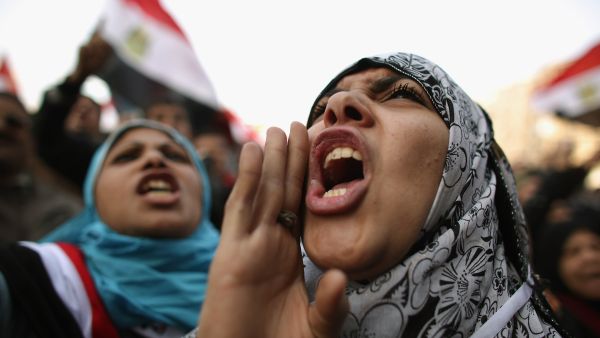Egypt’s Parliament has just approved a controversial legislation that NGOs say threatens to prevent their work completely, in the latest of a deepening crackdown against human rights and freedom of organisation in the country.
Egypt's proposed new NGO law is another major step backwards, seriously curtailing #humanrights activism https://t.co/C9NbY7wQ7B
— Michael Posner (@mikehposner) 15 November 2016
The law, which is not yet binding, bans civil society or development work that does not fall under government terms. It insists NGOs must be overseen by a regulating agency, bans them from conducting polls or fieldwork, or cooperating with international bodies without approval, and restricts the NGO activity to social and development work, Reuters reported.
It also means that the price for breaking any of the stipulations is prison time of up to five years. That means that if an NGO, for example, moves its headquarters to a different place than its registered address or works without a permit, those responsible for it could be thrown in jail.
The bill has been roundly condemned, by civil rights groups, citizens and analysts at home and abroad.
Bill gives security apparatus complete authority over #NGOs. - #Egypt Parliament approves controversial NGO bill https://t.co/30yfDhy8H9
— Jonathan Moremi (@jonamorem) 16 November 2016
'المصري الديمقراطي' يرفض قانون 'الجمعيات الأهلية': يقيد المجتمع المدني https://t.co/CA32wH8Q8n خسارة اليوم اللي احترمتكم فيه
— heba ragab (@hebascribt) 17 November 2016
The Democratic Egyptian rejects the NGO law: it restricts civil society. The day I respect it would be a shame.
Though many Egyptian Tweeters also expressed support for the law.
لا الجمعيات الأهلية
— Yousry Elbassal (@YElbassal) 16 November 2016
لا النشطاء الدولاريين #لا_عفو_لمن_خان_الوطن
لا لمن دمر وحرق مصر
No to NGOs
No to dollar activists #NoForgivenessForThoseWhoBetrayTheState
No to those destroy and burn Egypt
الدوله الفاشله المتسوله
— تيليسكوب (@bataabid) 16 November 2016
التي تتسول المنح والتبرعات من الداخل والخارج
تقر قانون الغاء تراخيص الجمعيات الاهلية والخيريه #انقذوا_اطفال_السرطان
Failed beggar state, that begs for grants and donations internally and externally. The law grants the cancelling of the licenses of charitable organizations and NGOs #SaveChildrenFromCancer"
The introduction of the bill rests on complicated prejudices in Egyptian society. NGOs, especially those with international links, have long been regarded with suspicion and sometimes hatred for “meddling” in the affairs of Egypt – although, as many point out, upholding human rights hardly qualifies as unwarranted in many eyes.







